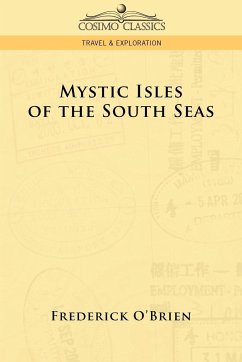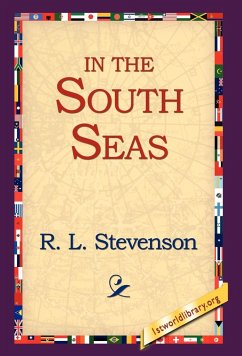The falls of Fautaua, famed in Tahitian legend, are exquisite in beauty and surrounding, and so near Papeete that I walked to them and back in a day. Yet hardly any one goes there. For those who have visited them they remain a shrine of loveliness, wondrous in form and unsurpassed in color. Before the genius of Tahiti was smothered in the black and white of modernism, the falls and the valley in which they are, were the haunt of lovers who sought seclusion for their pledgings. A princess accompanied me to them. She was not a daughter of a king or queen, but she was near to royalty, and herself as aristocratic in carriage and manner as was Oberea, who loved Captain Cook. -from Chapter XII In the years prior to World War I, American author FREDERICK O'BRIEN (1869-1932) took a grand tour of the South Pacific, and the trilogy of books he wrote upon his return sparked a new thirst for all things exotic, far-flung, and gloriously "uncivilized." In the second of these volumes, 1921's Mystic Isles of the South Seas, O'Brien explores the "merriest, most fascinating world of all the cosmos": the islands of Tahiti and Moorea. This is no simple account of ships boarded and sights seen: O'Brien takes us along on his journey of the heart and soul, to a land where a dance is an expression of passion, the sea is a living being, and fishing is practically religion. But O'Brien also makes pointed and poignant note of the inevitable death of this world, to which Westerners introduced the evils of alcohol and Asians were coming to dominate the population. This is a unique perspective on the South Seas cultures of old just as they were disappearing. OF INTEREST TO: armchair travelers, amateur anthropologists, readers of cross-cultural studies








